Sleep Apnea Treatment – Mesquite
Get the Quality Sleep You Deserve

We have found many patients that either have a real issue with constantly being tired or actually have a sleep apnea problem that requires treatment for health reasons. What we have also found is that many of those same people don't know what to do about either one of these problems. Our team of doctors have advanced certification in the treatment of snoring and sleep apnea and can help get these patients back to feeling rested and healthy. To learn more about sleep apnea or schedule an appointment, give us a call!
What Is Sleep Apnea?
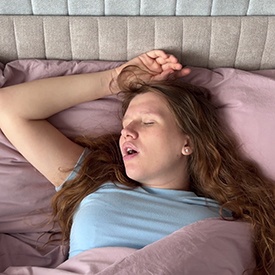
Sleep apnea is a health-threatening disorder that causes breathing to become restricted during sleep. Snoring can be a symptom as you fight to breathe during the night, constantly being restless and frequently waking up. Sleep apnea is sometimes caused by problems with your airway becoming obstructed during sleep, causing you to literally stop breathing as you are unable to pull air into your lungs. Our doctor's sleep apnea and snoring therapy techniques can help alleviate this kind of problem. If you experience any of the following, sleep apnea could be the reason:
- High blood pressure.
- Irritability or moodiness.
- Feeling tired consistently, regardless of how long you’ve slept.
- Morning headaches.
- Sore throat or dry mouth in the morning.
- Difficulty focusing.
- Impaired memory.
The Dangers of Sleep Apnea
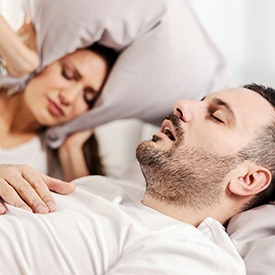
Snoring may seem like a harmless annoyance, but it can signal a larger problem. Left untreated, sleep apnea can lead to much greater health problems, such as high blood pressure, stroke, heart attack, and it can even make diabetes worse. Our team of doctors have extensive training in sleep apnea and snoring therapy.
Sleep Apnea Treatment Options
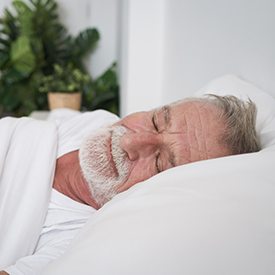
First, Dr. McKnight or Dr. Olga will determine if issues with your oral structures are the origin of your snoring or sleep apnea. If so, they’ll fit you for a custom oral appliance designed to create extra space in the oral cavity and throat area, allowing air to once again flow freely while you sleep. This only requires a simple impression and fabrication of the custom appliance.
If it is determined that your problems are severe enough to require a continuous positive airway pressure machine (CPAP) to be used. They can create a custom face mask to go with it that is half the size of the customary mask. The amazing fit allows you to do away with the annoying straps that customarily are required to secure the mask around your head. The custom mask makes CPAP a much more comfortable treatment.
Learn More About Oral Appliance Therapy
Understanding the Cost of Sleep Apnea Treatment

When you aren’t getting quality sleep each night, it is impossible to thrive during the day. If you have sleep apnea, treatment is necessary to reduce your symptoms and get the rest you need for your body to function properly. However, many people put off treatment because they are worried about its cost. During your visit with us, we will discuss the financial aspects of your treatment in detail so that you know what to expect. Until then, here’s what you should keep in mind.
Does Dental Insurance Cover the Cost of Sleep Apnea Treatment?

Dental insurance doesn’t cover the cost of sleep apnea treatment. Instead, your medical insurance plan will deal with sleep apnea diagnoses and treatments. To learn more about your coverage, it is also a good idea to contact your provider directly. We would also be happy to help you with this.
Factors That Affect the Cost of Sleep Apnea Treatment
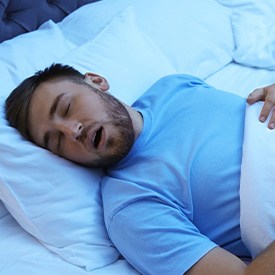
There are several factors that contribute to the cost of sleep apnea treatment. Here are the biggest ones:
- Type of Treatment: There are multiple methods available to address sleep apnea, and their treatments are at different price ranges. We use oral appliance therapy to reduce sleep apnea symptoms. This is usually more cost effective than CPAP therapy.
- Insurance Coverage: Depending on your coverage, more or less of your treatment will be paid for by your provider. With proper preauthorization, medical insurance plans should say how much they plan to pay before you receive your device.
Treat Your Sleep Apnea Now to Improve Your Health
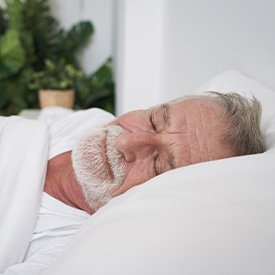
Many people put off sleep apnea diagnosis and treatment because they are worried about the cost. Whether or not you have health insurance that covers sleep apnea treatment, you can be confident that undergoing treatment will be beneficial for your well-being. Those with untreated sleep apnea are at higher risk of various health issues, including some that are life-threatening. This includes stroke, heart disease, diabetes, hypertension, depression, weight gain, and more. These problems will eventually result in high medical bills and a lower quality of life.
Making Sleep Apnea Treatment More Affordable

If you don’t have insurance, this doesn’t mean that you are completely out of luck. We are happy to accept payments through CareCredit – a third-party financing company that can split the cost of your treatment into manageable monthly installments with little to no interest. If you need help applying or want to learn more, don’t hesitate to reach out to one of our friendly team members.